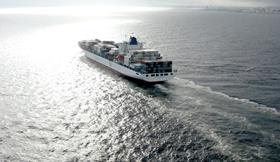
China’s increasing imports of fresh fruit has driven demand for refrigerated containers, according to the International Trade Centre.
With imports of fresh fruit to mainland China rising 26 per cent in the past five years to US$4bn, cold chain logistics companies are having to cater to a growing demand for fresh produce.
“The same factors that have benefited China’s exports over the last 20 years, such as open trade policy and investment in infrastructure, are now also starting to bear fruit for imports,” Michael Britton, Asia Pacific general manager for Hamburg Sud told the South China Morning Post.
“Cold storage capacity has greatly improved in China. Before it was pretty basic – brick warehouse, chain link fence and a padlock. But now investment are coming, which enables China to handle more perishable imports,” said Britton.
APL’s head of special cargo team, Kar Loke Ng, toldAsiafruitthat alongside a projected increase in reefer trade, a growing middle class and a more health conscious population were pushing a drive in demand for imported fruit, not just in China but across Asia.
“As more FTAs and agreements are being put in place between countries, it’s encouraging more trade. And with a growing population, and growing middle class, we’re seeing people are getting more health conscious, so everybody wants to eat more fruit and a bigger variety of fruit,” said Ng.“The reefer business is projected to grow at 4 to 5 per cent over the next few years, with more trips opening up to different countries.'
The boost in imports is not looking to slow anytime soon, according to Patrick Vizzone of National AustraliaBank. Speaking to Asiafruit Congress delegates in Hong Kong in early September, Vizzone said that imports in Asia have outstripped exports by 12.1 per cent to 10.5 per cent.
“Incremental food demand will double over the next generation, at a rate of 2.5 times that of the rest of that world,” said Vizzone, adding that 40 per cent of that demand will be in fresh produce.






No comments yet